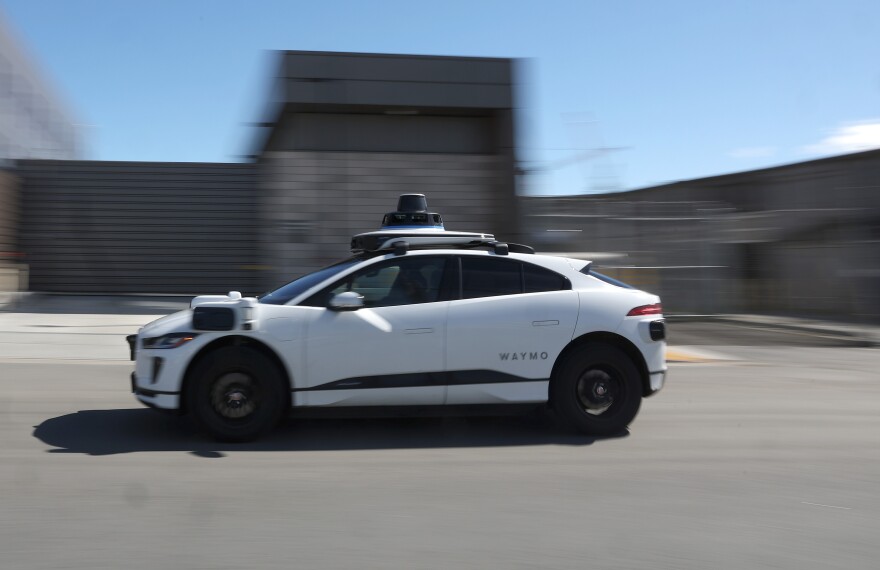California Gives Waymo The Green Light To Start Charging For Rides in LA

The driverless ride-hailing company Waymo has just cleared a major regulatory hurdle to expand in Los Angeles: It can now start charging for rides, and it's allowed to drive up to 65 mph on freeways.
The California Public Utilities Commission (CPUC), which regulates self-driving cars as well as ride-hailing services like Lyft and Uber, gave the go-ahead to Waymo in a decision Friday.
Waymo, a subsidiary of Google's parent company Alphabet, has not announced when they will start charging for rides or when the cars will start driving on freeways. In a Feb. 29 interview with TechCrunch, Waymo CEO Tekedra Mawakana said that the company is planning to expand their operations in Los Angeles but didn't give a timeline.
Where things stand
Waymo has been testing out its cars across Los Angeles and Santa Monica as part of a pilot program since last fall. The company also operates in Austin, San Francisco and Phoenix.
Local government agencies in Los Angeles and the Bay Area, including the L.A. Department of Transportation, submitted letters to the CPUC opposing the expansion.
L.A. Mayor Karen Bass, one of the voices arguing against the expansion of driverless cars without local regulations, said that without input from the local government, driverless cars will have "adverse impacts on the residents of Los Angeles."
-
At magnitude 7.2, buildings collapsed
-
Now spinning in front of Santa Monica apartments
-
Advocates seek end to new LAUSD location policy
"To date, local jurisdictions like Los Angeles have had little to no input in [autonomous vehicle] deployment and are already seeing significant harm and disruption," Bass wrote in a statement to the CPUC in November.
What opponents and supporters are saying
In her letter opposing Waymo's expansion, Bass cited incidents involving Waymo vehicles in San Francisco, including the cars blocking firehouse driveways, creating traffic backups by stopping on one-way streets, and parking on top of a fire hose at an active fire scene.
Meanwhile, organizations like the Los Angeles Business Council and the Pico Union Project submitted letters to the CPUC supporting the expansion of Waymo's services.
Waymo responded by saying that they did hold meetings with local officials and followed the state's regulatory process, according to the CPUC's report.
The CPUC—the same agency that deals with things like water, power and methane gas—is currently one of the main government agencies regulating autonomous vehicles along with the DMV, though that may change if a new bill passes. Senate Bill 915, which was first introduced in 2023, would allow cities to impose their own restrictions on the controversial driverless vehicles.
For their part, the Teamsters have voiced their support for SB 915 and called for greater safety measures in self-driving cars.
-
You can take the test in the comfort of your own home, twice.
-
The location in East Hollywood is the fourth official crosswalk to replace Crosswalk Collective LA's "unauthorized" efforts. Other DIY crosswalks have been removed by city officials.
-
Step one: Pull out that phone and snag photos of the pothole and car damage.
-
If you’ve ever seen a street name that has multiple versions like drive, place and road, this one’s for you. It makes little sense now, but there’s an old reason for it.
-
The goal is to reduce the often inequitable police enforcement of crossing the street. In Los Angeles, nearly a third of citations each year are written to Black pedestrians, who make up about 9% of the city’s population.
-
L.A. parking rules are confusing (and enraging). This guide will help.






